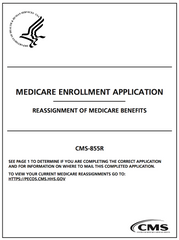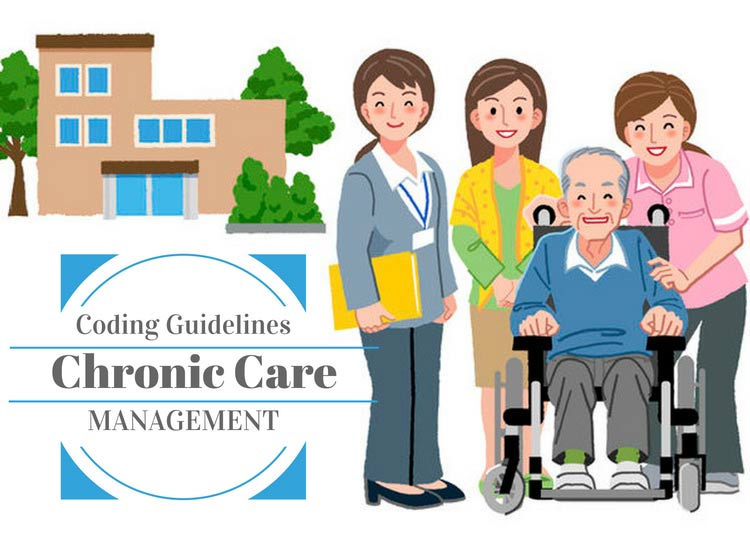
New Chronic Care Management (CCM) Coding Guidelines Effective January 1, 2017
The Centers for Medicare and Medicaid Services (CMS) recently released new billing requirements for chronic care management services or CCM.
Less than two years ago, on January 1, 2015, Medicare began issuing a separate payment for CCM services under CPT code 99490. This included 20 minutes of non-face-to-face care coordination for Medicare patients with two or more chronic health conditions. However, CMS began receiving feedback from providers that the service elements and billing requirements were too complex and redundant as well as complaints that the code isn’t utilized frequently because it is underpaid compared to the resources spent.
CMS initiated these latest billing changes in order to improve payment accuracy for CCM services as well as reduce administrative burden for providers.
Here are the three of the major changes regarding chronic care management billing that will take effect on January 1, 2017.
1. Better Utilization of Other CCM CPT codes
Before we look at the other CCM codes, let’s review the code description for CPT 99490.
CPT 99490 — Chronic care management services, at least 20 minutes of clinical staff time directed by a physician or other qualified health care professional, per calendar month, with the following required elements:
- Multiple (two or more) chronic conditions expected to last at least 12 months, or until the death of the patient;
- Chronic conditions place the patient at significant risk of death, acute exacerbation/decompensation, or functional decline;
- Comprehensive care plan established, implemented, revised, or monitored
As part of the changes taking effect in 2017, CMS has pledged to “appropriately recognize and pay for” other complex chronic care management CPT codes including CPT 99487 and CPT 99489.
The complex CCM code descriptions are as follows:
CPT 99487 — Complex chronic care management services, with the following required elements:
- Multiple (two or more) chronic conditions expected to last at least 12 months, or until the death of the patient;
- Chronic conditions place the patient at significant risk of death, acute exacerbation/decompensation, or functional decline;
- Establishment or substantial revision of a comprehensive care plan;
- Moderate or high complexity medical decision-making;
- 60 minutes of clinical staff time directed by a physician or other qualified health care professional, per calendar month
CPT 99489 — Each additional 30 minutes of clinical staff time directed by a physician or other qualified health care professional, per calendar month (List separately in addition to code for primary procedure).
During each calendar month, if you have accumulated less than 60 minutes of clinical staff time, then CPT 99487 should not be billed separately. Likewise, if less than 30 minutes have accumulated in addition to the first 60 minutes of complex CCM, then CPT 99489 should not be billed separately.
Frequency of Reporting — CPT codes 99487, 99489, and 99490 may only be reported once per calendar month and only by the practitioner who provided care management during that calendar month. Only one professional claim should be submitted per calendar month.
Complex VS Non-Complex — For each calendar month, a beneficiary should be classified as eligible either for complex or non-complex chronic care management. Both types of services cannot be billed simultaneously.
2. Service Element Revisions
CMS also proposed changes to the required service elements that need to be met in order to bill for any chronic care management service. Specifically, revisions were made to six service elements including:
- Initiating visit
- 24/7 access to care and continuity of care
- Comprehensive care plan
- Management of care transitions documentation
- Home and community-based care coordination
- Beneficiary consent
The changes to these six service elements as well as the complete list of service elements for 2017 are listed below. Remember, the proposed service elements must be met in order to bill for any of the three CCM codes — CPT 99487, 99489, and 99490.
Initiating Visit
Current Rule: To enroll patients in CCM services, the billing physician must have a face-to-face Level 2-5 E/M visit, an Annual Wellness Visit (AWV), or an initial “Welcome to Medicare” (also called an initial preventive physician examination or IPPE) visit with the patient.
New Rule: Only new patients or patients not seen within 1 year prior are required to have an initiating visit for CCM services. The initiating face-to-face visit is no longer required for existing patients who have been seen within the past year. A new CPT code G0506 should also be billed in conjunction with the start or initiation of CCM services. Look for more details on this code below.
- Initiation during an Annual Wellness Visit (AWV), Welcome to Medicare/initial preventive physician examination (IPPE), or face-to-face E/M visit (Level 4 or 5 visit not required), for new patients or patients not seen within 1 year prior to the commencement of chronic care management (CCM) services.
Structured Recording of Patient Information Using Certified EHR Technology
- Structured recording of demographics, problems, medications and medication allergies using certified EHR technology.
- A full list of problems, medications and medication allergies in the EHR must inform the care plan, care coordination and ongoing clinical care.
24/7 Access & Continuity of Care
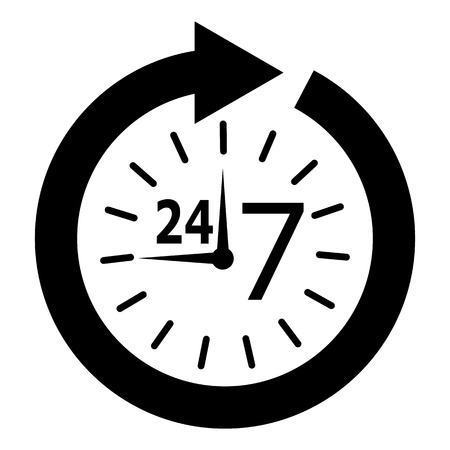 Current Rule: Ensure 24-hour-a-day, 7-day-a-week (24/7) access to care management services, providing the patient with a means to make timely contact with healthcare practitioners in the practice who have access to the patient’s electronic care plan to address his or her urgent chronic care needs.
Current Rule: Ensure 24-hour-a-day, 7-day-a-week (24/7) access to care management services, providing the patient with a means to make timely contact with healthcare practitioners in the practice who have access to the patient’s electronic care plan to address his or her urgent chronic care needs.
New Rule: The requirement regarding after-hours access to the beneficiary’s electronic care plan has been eliminated. CMS will allow fax to count for electronic transmission of clinical summaries and the care plan.
- Provide 24/7 access to physicians or other qualified health care professionals or clinical staff including providing patients/caregivers with a means to make contact with healthcare professionals in the practice to address urgent needs regardless of the time of day or day of week.
- Continuity of care with a designated member of the care team with whom the beneficiary is able to schedule successive routine appointments.
Comprehensive Care Management
- Care management for chronic conditions including systematic assessment of the beneficiary’s medical, functional, and psychosocial needs; system-based approaches to ensure timely receipt of all recommended preventive care services; medication reconciliation with review of adherence and potential interactions; and oversight of beneficiary self-management of medications.
Comprehensive Care Plan
Current Rule: The beneficiary must be provided with a written or electronic copy of the care plan.
New Rule: Providers may choose the format in which the care plan is provided to patients.
- Creation, revision and/or monitoring (as per code descriptors) of an electronic patient-centered care plan based on a physical, mental, cognitive, psychosocial, functional and environmental (re)assessment and an inventory of resources and supports; a comprehensive care plan for all health issues.
- Must at least electronically capture care plan information, and make this information available timely within and outside the billing practice as appropriate. Share care plan information electronically (can include fax) and timely within and outside the billing practice to individuals involved in the beneficiary’s care.
- A copy of the plan of care must be given to the patient and/or caregiver.
Management of Care Transitions
 Current Rule: The physician must create a clinical summary and transmit it to other providers involved in the beneficiary’s care to ensure continuity of care. Clinical summaries should be formatted according to CCM certified technology and transmitted electronically (other than fax).
Current Rule: The physician must create a clinical summary and transmit it to other providers involved in the beneficiary’s care to ensure continuity of care. Clinical summaries should be formatted according to CCM certified technology and transmitted electronically (other than fax).
New Rule: The document will now be referred to as a continuity of care document instead of a clinical summary. Formatting of the document as well as how it is transmitted to other providers is no longer regulated.
- Management of care transitions between and among health care providers and settings, including referrals to other clinicians; follow-up after an emergency department visit; and follow-up after discharges from hospitals, skilled nursing facilities or other health care facilities.
- Create and exchange/transmit continuity of care document(s) timely with other practitioners and providers.
Home- and Community-Based Care Coordination
Current Rule: A physician must document (in a qualifying certified electronic health record) communication to and from home- and community-based providers regarding the patient’s psychosocial needs and functional deficits.
New Rule: Those communications must be documented in the patient’s medical record, but the requirement to do so in a qualifying certified electronic health record has been removed.
- Coordination with home and community-based clinical service providers.
- Communication to and from home- and community-based providers regarding the patient’s psychosocial needs and functional deficits must be documented in the patient’s medical record.
Enhanced Communication Opportunities
- Enhanced opportunities for the beneficiary and any caregiver to communicate with the practitioner regarding the beneficiary’s care through not only telephone access, but also through the use of secure messaging, Internet, or other asynchronous non-face-to-face consultation methods.
Beneficiary Consent
Current Rule: Written consent must be obtained from the beneficiary.
New Rule: The provider can choose to obtain either verbal or written consent, provided it is documented in the medical record.
- Inform the beneficiary of the availability of CCM services; that only one practitioner can furnish and be paid for these services during a calendar month; and of their right to stop the CCM services at any time (effective at the end of the calendar month).
- Document in the beneficiary’s medical record that the required information was explained and whether the beneficiary accepted or declined the services.
Medical Decision-Making
- Complex CCM services require and include medical decision-making of moderate to high complexity (by the physician or other billing practitioner).
3. New Add-on G-code
CMS also created a new add-on G-code to “improve payment for services that qualify as initiating visits for CCM services.”
CPT G0506 — Comprehensive assessment of and care planning by the physician or other qualified health care professional for patients requiring chronic care management services (billed separately from monthly care management services) (Add-on code, list separately in addition to primary service).
This code is to be billed for beneficiaries requiring extensive face-to-face assessment and face-to-face or non-face-to-face care planning. For this code, the assessment and planning is conducted by the physician instead of the clinical staff as is the case for CPT codes 99487, 99489, and 99490.
In addition to billing for the initiating visit (which could be an E/M, AWV, or IPPE), the physician should also bill CPT G0506 for the comprehensive assessment and planning.
G0506 may only be billed once per beneficiary, in conjunction with the start or initiation of CCM services. CPT codes 99487, 99489, and 99490 may be billed with G0506, assuming the billing requirements are met.
Note regarding behavioral health: Code G0505 and G0506 may not be billed the same day by the same practitioner.
G0505 — Cognition and functional assessment by the physician or other qualified health care professional in office or other outpatient, prolonged non-face-to-face services
Other Billing Changes
The final rule will be published in the Federal Register on November 15, 2016. In it, there will be several other billing and coding changes set to take effect January 1, 2017. According to CMS, these changes will help to “better identify and value primary care, care management, and cognitive services.”
- Below are some of the additional changes you can expect to see in the final ruling: Make
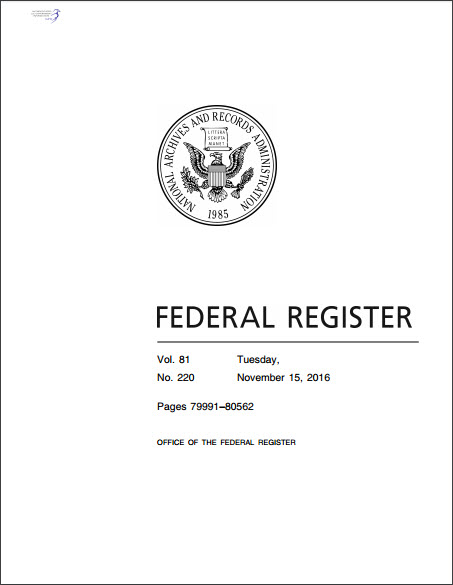 separate payments using a new code to describe the comprehensive assessment and care planning for patients with cognitive impairment (e.g., dementia).
separate payments using a new code to describe the comprehensive assessment and care planning for patients with cognitive impairment (e.g., dementia).
- Make separate payments using new codes to pay primary care practices that use interprofessional care management resources to treat patients with behavioral health conditions. Several of these codes describe services within behavioral health integration models of care, including the Psychiatric Collaborative Care Model that involves care coordination between a psychiatric consultant or behavioral health specialist, behavioral health care manager, and the primary care clinician, which has been shown to improve quality of care.
Expected Chronic Care Reimbursement Rates
It’s worth noting the estimated payments you can expect from Medicare when billing for chronic care management services. Here is a quick checklist to keep handy for future reference. Check with your local Medicare carrier for exact rates in your area.
| CODE |
DESCRIPTION |
FEE |
| 99490 |
Chronic care management services |
$ 42 |
| 99487 |
Complex chronic care management services |
$ 88 |
| 99489 |
Each additional 30 minutes |
$ 44 |
| G0505 |
Cognition and functional assessment |
$ 227 |
| G0506 |
Comprehensive assessment and care planning |
$ 61 |
What do you think about the new CCM guidelines? What questions or concerns do you have? Please join the conversation below.
— This post Chronic Care Management Coding Guidelines Effective January 1, 2017 was written by Manny Oliverez and first appeared on Capture Billing. Capture Billing is a medical billing company helping medical practices get their insurance claims paid faster, easier and with less stress allowing doctors to focus on their patients.
Capture Billing






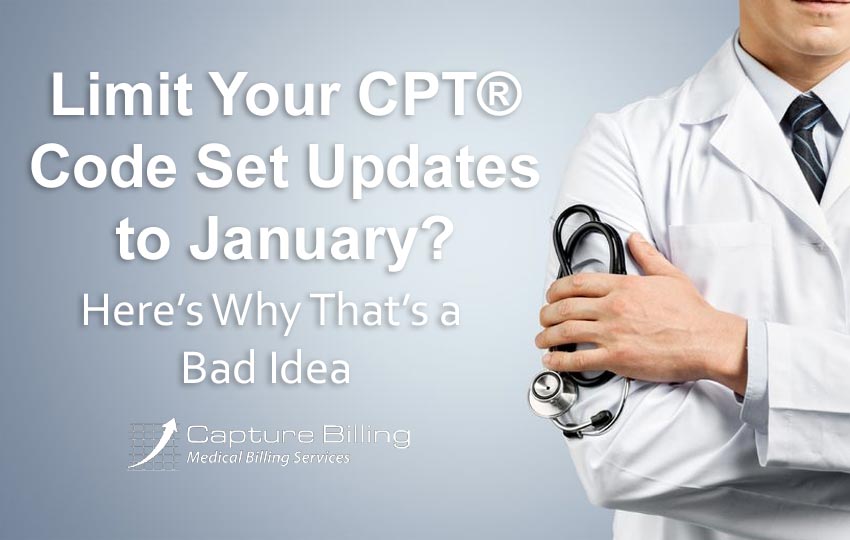
 Deborah Marsh, JD, MA, CPC, CHONC, is a senior content specialist for TCI SuperCoder, working on everything from online tool enhancements and data updates to social media and blog posts. Deborah joined TCI in 2004 as a member of TCI’s respected Coding Alert editorial team.
Deborah Marsh, JD, MA, CPC, CHONC, is a senior content specialist for TCI SuperCoder, working on everything from online tool enhancements and data updates to social media and blog posts. Deborah joined TCI in 2004 as a member of TCI’s respected Coding Alert editorial team.
 Current Rule: Ensure 24-hour-a-day, 7-day-a-week (24/7) access to care management services, providing the patient with a means to make timely contact with healthcare practitioners in the practice who have access to the patient’s electronic care plan to address his or her urgent chronic care needs.
Current Rule: Ensure 24-hour-a-day, 7-day-a-week (24/7) access to care management services, providing the patient with a means to make timely contact with healthcare practitioners in the practice who have access to the patient’s electronic care plan to address his or her urgent chronic care needs. Current Rule: The physician must create a clinical summary and transmit it to other providers involved in the beneficiary’s care to ensure continuity of care. Clinical summaries should be formatted according to CCM certified technology and transmitted electronically (other than fax).
Current Rule: The physician must create a clinical summary and transmit it to other providers involved in the beneficiary’s care to ensure continuity of care. Clinical summaries should be formatted according to CCM certified technology and transmitted electronically (other than fax).
